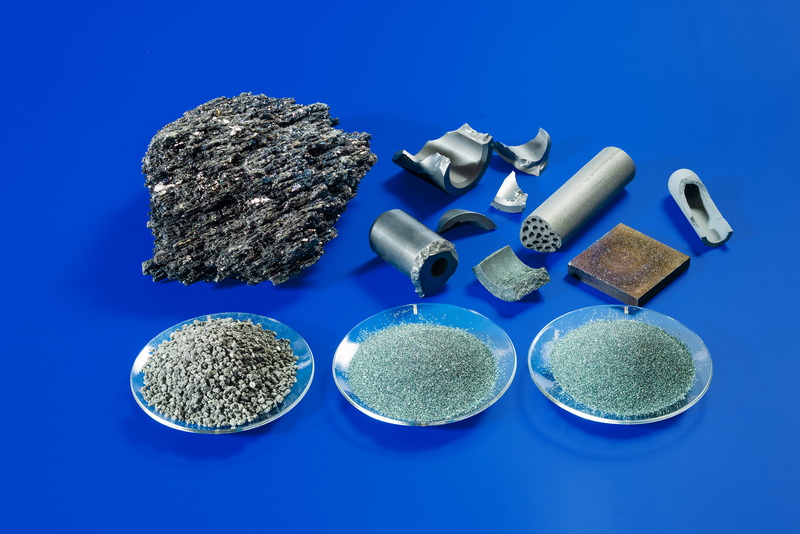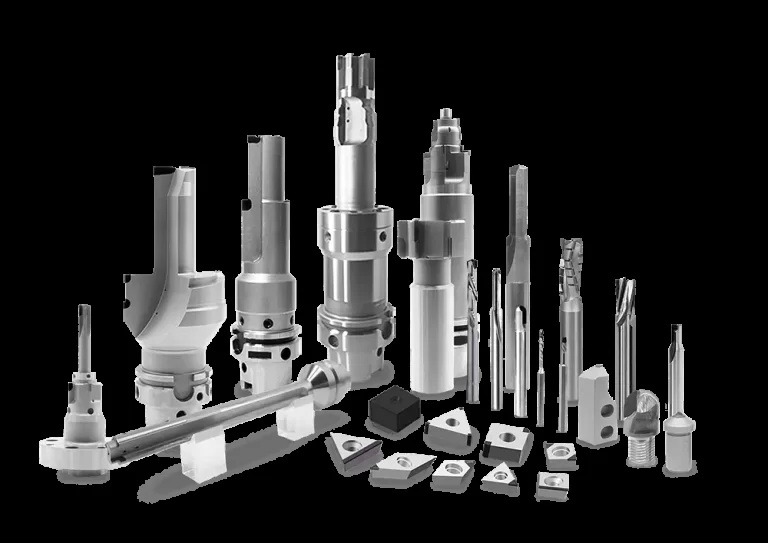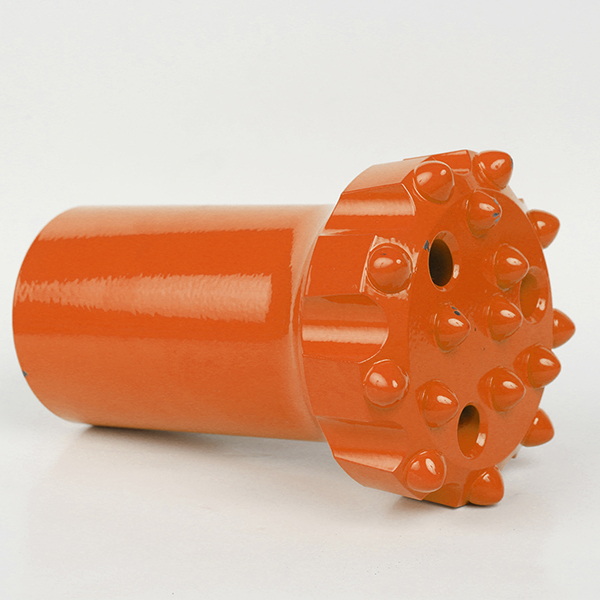Content Menu
● 1. Material Properties of High Purity Silicon Carbide
>> Exceptional Hardness and Wear Resistance
>> High Thermal Conductivity
● 2. Applications in Drilling Technologies
>> Oil and Gas Exploration
>> Additive Manufacturing and Hybrid Materials
● 4. Market Outlook
● 5. Environmental Impact and Sustainability
>> Reduced Waste and Energy Consumption
>> Lower Carbon Footprint
● 6. Challenges and Future Directions
>> Cost Considerations
>> Ongoing Research
● Conclusion
● FAQ
>> 1. How does SiC compare to diamond in drilling tools?
>> 2. Can SiC tools machine other SiC components?
>> 3. Are high purity SiC products environmentally friendly?
>> 4. What industries benefit most from SiC drilling tools?
>> 5. How do SiC coatings enhance traditional drills?
● Citations:
High purity silicon carbide (SiC) has emerged as a transformative material for drilling tools, offering unparalleled performance in extreme environments. Its exceptional hardness, thermal stability, and corrosion resistance make it indispensable for industries like oil and gas exploration, mining, semiconductor manufacturing, and aerospace. This article explores the unique properties of high purity silicon carbide products, their applications in drilling technologies, and the innovations driving their adoption.

1. Material Properties of High Purity Silicon Carbide
Exceptional Hardness and Wear Resistance
High purity silicon carbide ranks among the hardest materials globally, with a Mohs hardness of 9.5 (second only to diamond and boron carbide). This property enables SiC-based drilling tools to maintain sharp cutting edges even when machining ultra-hard materials like tungsten carbide, sintered ceramics, or composite alloys. For example, PCD (polycrystalline diamond) drills with SiC coatings achieve 3.2x longer tool life compared to traditional carbide tools in silicon carbide wafer processing.
Key advantages:
- Reduces tool replacement frequency by 40–60% in abrasive environments.
- Maintains dimensional accuracy in high-precision applications like semiconductor wafer drilling.
Silicon carbide retains its mechanical properties at temperatures exceeding 1,600°C, making it ideal for deep-well drilling and high-speed machining. Unlike steel or tungsten carbide, SiC does not oxidize or degrade when exposed to:
- High-pressure geothermal environments
- Corrosive fluids in oil/gas extraction
- Reactive gases in semiconductor fabrication
Case study:
In downhole oil drilling, SiC-coated bits withstand 2,000+ hours of operation at 250°C, compared to 300 hours for conventional steel bits.
High purity silicon carbide products also demonstrate remarkable fracture toughness, which is critical for drilling tools subjected to repeated impact and cyclic loading. The fine, uniform grain structure of high purity SiC helps dissipate stress, reducing the likelihood of catastrophic tool failure. This property is especially important in applications like directional drilling, where tools must withstand both torsional and axial forces.
Benefits:
- Improved safety and reliability in critical drilling operations
- Lower risk of tool breakage, reducing costly downtime
High Thermal Conductivity
Another unique property of high purity silicon carbide is its high thermal conductivity, which is typically in the range of 120–270 W/m·K. This allows for rapid dissipation of heat generated during high-speed drilling, minimizing thermal damage to both the tool and the workpiece.
Implications:
- Enables higher drilling speeds and feeds
- Reduces risk of thermal cracking in brittle materials
High purity silicon carbide is chemically inert to most acids, alkalis, and solvents. This makes it ideal for use in environments where tools are exposed to aggressive chemicals, such as oil and gas wells containing hydrogen sulfide (H₂S), carbon dioxide (CO₂), or brine.
Practical impact:
- Extends tool life in corrosive drilling environments
- Reduces maintenance and replacement costs
2. Applications in Drilling Technologies
Oil and Gas Exploration
High purity silicon carbide products dominate in extreme downhole conditions:
| Feature | SiC Drill Bits | Traditional Steel Bits |
| Operating temperature | ≤2,000°C | ≤500°C |
| Corrosion resistance | Resists H₂S/CO₂ | Prone to sulfide cracking |
| Lifespan | 6–8x longer | Frequent replacements |
SiC liners and casings also prevent wellbore collapse in shale formations, reducing downtime by 22%.
SiC's electrical resistivity (>10⊃3; Ω·cm) and purity (>99.9995%) make it critical for drilling micro-holes in:
- SiC wafers: 0.4mm-diameter holes with aspect ratios up to 15:1.
- Shower heads: Gas distribution plates requiring 1.7±0.1mm holes for chemical vapor deposition.
Ultrasonic-assisted SiC drilling achieves edge cracks 70 MPa, suitable for high-torque drilling.
These coatings can be applied to traditional carbide or steel substrates, enhancing their performance in harsh drilling environments.
High-frequency vibration (20–40 kHz) paired with PCD drills enables:
- 4x higher peck drilling rates (Q=0.04mm vs. 0.01mm).
- 3.2x lower tool wear during SiC machining.
Ultrasonic machining is particularly effective for producing micro-holes and complex geometries in hard, brittle materials like SiC.
Additive Manufacturing and Hybrid Materials
Recent advances in additive manufacturing have enabled the production of complex SiC structures with tailored porosity and geometry. Hybrid tools, combining SiC with diamond or other superhard materials, are being developed for specialized applications such as lunar drilling or geothermal exploration.
Advantages:
- Customizable tool designs for specific drilling challenges
- Improved performance in extreme environments

4. Market Outlook
The global ultra-high purity SiC market is projected to grow at 14.8% CAGR, driven by demand from energy, aerospace, and semiconductor sectors. Key trends include:
- Hybrid tools: Combining SiC coatings with diamond composites for lunar drilling applications.
- Additive manufacturing: 3D-printed SiC lattices for lightweight geothermal probes.
Asia-Pacific, North America, and Europe are the leading regions for SiC adoption, with major investments in semiconductor and renewable energy infrastructure.
5. Environmental Impact and Sustainability
Reduced Waste and Energy Consumption
High purity silicon carbide products contribute to sustainability by extending tool life and reducing the frequency of replacements. This leads to less waste and lower resource consumption over the lifespan of drilling operations.
Lower Carbon Footprint
The production of SiC emits less CO₂ compared to traditional tungsten carbide manufacturing processes. Additionally, the durability of SiC tools means fewer resources are required for maintenance and replacement, further reducing the overall environmental impact.
6. Challenges and Future Directions
Cost Considerations
While high purity silicon carbide products offer numerous advantages, their initial cost can be higher than traditional materials. However, the long-term savings from reduced tool wear, lower maintenance, and improved efficiency often outweigh the upfront investment.
Ongoing Research
Researchers are continually working to improve the properties and manufacturing processes of SiC, including:
- Developing even higher purity grades for semiconductor and quantum applications
- Exploring new composite materials that combine SiC with other superhard phases
- Enhancing the scalability and cost-effectiveness of SiC additive manufacturing
Conclusion
High purity silicon carbide products redefine the limits of drilling technology, offering unmatched durability and precision across industries. From extending oil well lifespans to enabling next-gen semiconductor devices, SiC's unique properties address the most demanding engineering challenges. As manufacturing techniques advance, these materials will play a pivotal role in sustainable resource extraction and high-tech production. The future of drilling tools is undoubtedly linked to the continued development and application of high purity silicon carbide.

FAQ
1. How does SiC compare to diamond in drilling tools?
While diamond is harder, SiC offers better thermal shock resistance and cost efficiency for large-scale applications like oil drilling.
2. Can SiC tools machine other SiC components?
Yes, ultrasonic-assisted PCD drills achieve 7.2-minute cycle times for Φ0.4mm holes in sintered SiC.
3. Are high purity SiC products environmentally friendly?
SiC's longevity reduces waste, and its production emits 30% less CO₂ than tungsten carbide.
4. What industries benefit most from SiC drilling tools?
Oil/gas, semiconductor manufacturing, aerospace, and mining collectively drive 85% of demand.
5. How do SiC coatings enhance traditional drills?
CVD-applied coatings improve wear resistance by 200% and thermal conductivity by 150%.
Citations:
[1] https://www.gemtool.com.tw/en/news.php?act=view&id=33
[2] https://www.hit-tw.com/advantagedetails.aspx?id=122
[3] https://www.grandviewresearch.com/industry-analysis/ultra-high-purity-silicon-carbide-market
[4] https://www.silicon-carbides.com/blog/silicon-carbide-in-downhole-oil-and-gas-applications.html
[5] https://www.cn-semiconductorparts.com/properties-benefits-high-purity-silicon-carbide-coatings/
[6] https://guehring.com/en/products/drilling-tools/
[7] https://www.hit-tw.com/advantagedetails.aspx?id=322
[8] https://www.gracehaozan.com/products_detail_1.htm
[9] https://en.wikipedia.org/wiki/Silicon_carbide
[10] https://www.hiper.cn/en/%E9%AB%98%E7%BA%AFsic%E5%8E%9F%E6%96%99/
[11] https://www.hit-tw.com/newsdetails.aspx?nid=1343
[12] https://www.mtb2b.tw/en/articles/186
[13] https://ggsceramic.com/news-item/what-are-the-main-uses-of-silicon-carbide-everything-you-need-to-know
[14] https://www.sciencedirect.com/science/article/abs/pii/S2352492824019743
[15] https://www.hit-tw.com/advantagedetails.aspx?id=62
[16] https://www.linkedin.com/pulse/what-benefit-silicon-carbide--wloic
[17] https://xinliabrasive.en.made-in-china.com/product/gFtavKbrZZRU/China-High-Purity-Black-Silicon-Carbide-Grit-and-Powder-for-Polishing-and-Grinding.html
[18] https://www.sciencedirect.com/science/article/abs/pii/S0030399223010599
[19] https://www.fiven.com/products/sika-e-sicr-high-purity/
[20] https://www.energy.gov/sites/prod/files/2013/11/f4/nanocomposites_drill_bits.pdf
[21] https://www.eletimes.com/silicon-carbide-overview-discovery-properties-process-uses
[22] https://www.sciencedirect.com/science/article/abs/pii/S0272884215005222
[23] https://www.tyrolit.com/at-en/products/tools/precision-grinding/fine-grinding/silicon-carbide-grinding-tools-in-self-sharpening-resin-bonding-systems-818/
[24] https://www.coorstek.com/en/industries/energy/oil-gas-and-chemicals/silicon-carbide-pdc-bit-displacers/
[25] https://www.nanoshel.com/product/silicon-carbide-granules?img=uploads%2F1654836361_High_Purity_Metals_Category_Banner.jpg
[26] https://bonturerefractory.en.made-in-china.com/product/swBtEXSULKcp/China-High-Purity-99-Sic-F4-F90-Green-Carborundum-Green-Silicium-Silicon-Carbide.html
[27] https://www.istockphoto.com/photos/carbide
[28] https://www.bestonedrill.com/types-of-drilling-bits-used-in-mining-industry/
[29] https://ukam.com/product/9600037/
[30] https://cdn.walter-tools.com/files/sitecollectiondocuments/technicalinformation/da-dk/cutting-data-solid-carbide-drilling-reaming-tools-da-dk.pdf
[31] https://pixabay.com/images/search/silicon%20carbide%20grit%20manufacturer/?pagi=7
[32] https://www.shutterstock.com/search/silicon-carbide
[33] https://zezonsupplychain.en.made-in-china.com/product/uZjGDwPcApfb/China-Mining-Rock-Drilling-Tools-12-Degree-Drill-Chisel-Bit.html
[34] https://mikon-online.com/mikon_en/grosshandel-mineralien-rohstein/rohsteine/silicon-carbide-99-pure-1-kg.html
[35] https://www.farnell.com/datasheets/1675561.pdf
[36] https://www.infineon.com/cms/en/product/power/mosfet/silicon-carbide/
[37] https://cdn.walter-tools.com/files/sitecollectiondocuments/technicalinformation/sv-se/holemaking-cutting-data-solid-carbide-drilling-reaming-tools-sv-se.pdf
[38] https://www.microchip.com/en-us/products/power-management/silicon-carbide-sic-devices-and-power-modules















